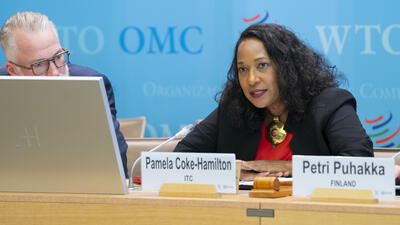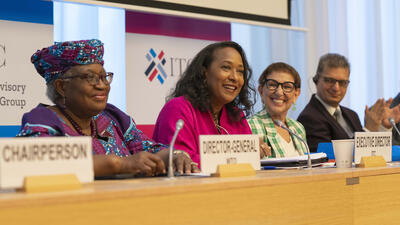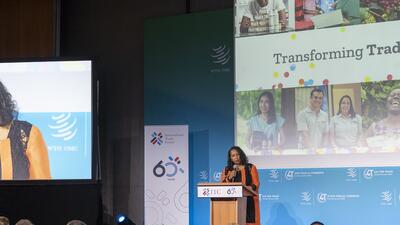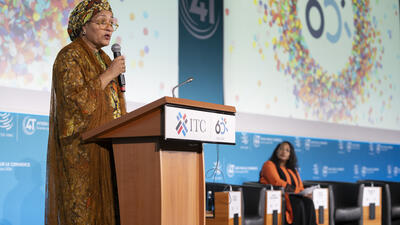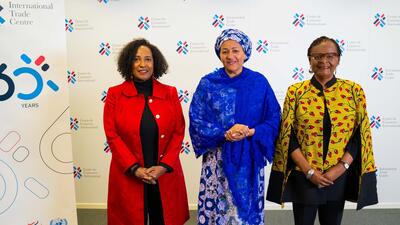
ITC Executive Director's remarks on "Just Transition" at COP27
Sharm El-Sheikh, 7 November 2022 – At COP27’s high-level round table on “Just Transition” during the Climate Implementation Summit (World Leaders Summit), Pamela Coke-Hamilton called for increased small business participation in climate negotiations.
As Elizabeth Taylor said to her third husband, I will be brief.
A year ago, I had the honour of attending COP26 in Glasgow. At that event, as we speed-walked from event to bilateral to event, I noted a glaring omission in the halls of the convention centre. The absence of what I think is a silent majority: the small businesses who make up 90% of the world economy; who are responsible for 80% of all GHG emissions along the value chain. Their absence at the table was noticeable.
That’s why this theme of a “Just Transition” is so important. If there is to be a truly Just Transition, that addresses issues of equity, economic development, social and labour inclusion, the voice of small businesses has to be an integral part of this dialogue.
But it’s easy to set goals and targets. We set them all the time, at conferences just like this. But the SDG process has taught us a lesson: you can’t just set the goals and expect them to be achieved. You have to determine the pathway and the resources needed to achieve these goals. It’s not just the “what” but the “how”. The core question is: are we willing to do the right thing and leave nobody behind?
The International Trade Centre, an agency of both the UN and WTO, has sought to correct this absence at COP27 by bringing the small business voice to the table. We have brought five companies from across the world to showcase what they have been doing to make the transition to low-carbon production. To tell their stories directly to the COP constituency. To bring reality from the ground into a discussion that can easily become disconnected from reality.
Let’s not forget: it is small businesses who suffer disproportionately from climate change, especially those led by women and young people. They are going to be most challenged to meet these targets that we set; to take advantage of the opportunities created in this green transition. They will need not only financing but technology, new skills, technical assistance to comply with new regulations and market requirements. This will help them to create new employment and ultimately improve livelihoods across the globe.
So let me underscore – since we so often focus on the challenges – on the opportunities. The green transition is an historic opportunity for small businesses to become not only more resilient but also more competitive.
Let me close by calling on governments and private sector to work with small businesses, especially those in least developed countries, land-locked countries, countries in conflict / post-conflict and small island developing states. Let’s make this low-carbon transition a just and transformational one.




